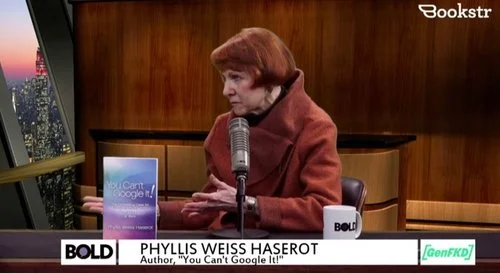Meaningful Conversation Requires Being Honest with Ourselves First Ready, Willing and Able
/In the first article in this series, I spent a good deal of space explaining the context with a dramatized example of the difficulty people have talking with – not to or at – each other. Those of you who know me or have followed me know this topic is part of my work and mission as expressed in my brandline: In the business of Uniting People, Purpose Potential and Profits across the Generations at work.
Realizing the need for hard conversations is one thing; acting on it requires dealing with the fears of doing so. Just focusing on the obvious symptoms won’t provide the necessary deeper mind and behavior changes that identifying and dealing with root causes of the specific situation can bring.
Looking back at the messages I gleaned from the play “American Rot, (see previous article for context),” I wondered how truly sincere the 2 main characters were deep down. We can be avoiding the true emotions that stand in the way. Let’s be honest with ourselves.
So the first questions that came to my mind are:
Do you really want to have a hard conversation?
Are you willing to be so vulnerable?
Are you willing to be shown to be wrong?
Are you willing to discover you may be wrong?
Think of the level of fear and discomfort that degree of openness can cause! And yet when you speak up, you want to be greeted with respect and credit for your honesty. I wondered if the Scott and Taney descendants characters in ”American Rot” wanted to make each other believe their verbalized feelings and that their answers to these questions would be “yes.”
One, Jim Taney, was willing to make a long trip to have the conversation. Once there together, he was not able to fulfill what he said (maybe even thought?) he wanted the outcome to be. And the surrounding characters, including daughters of both men, with their additional differences and biases, made it more difficult and got the effort off track. Just like we are experiencing in our time as we navigate work and life.
Back to the original topic:
What factors derail the initial good intentions?
7 Possibilities
We interpret what’s going on through what we know from our own individual experience
How we express ourselves can be misinterpreted. e.g. each generation has its own customs, language, jargon, look, that may be strange or a mystery to others.
Forgetting or resistance to testing our assumptions.
The media can sway our opinions, even without our realizing it.
Frustrations with approaches we tried before that didn’t provide the desired outcome.
Future pain we might experience by choosing to have hard conversations.
Near term options we don’t like.
Self-honesty first, willingness, then courage.
Future blogs in this series will address more specifically the roadblocks to communication in the workplace and where and how to initiate solutions in an effort to reframe and change work culture. Leaders must be willing to transform the “drama” to peace and empathetic understanding.
Call to Action: Please Comment and add your thoughts. You may comment anonymously. Sharing our sincere thoughts is vital to progressing past this difficult roadblock.



